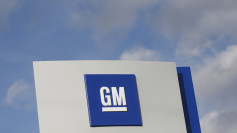Tesla reported a 55% decline in profits for the first quarter of 2024, with earnings falling to $1.13 billion from the same year-ago period. The electric vehicle manufacturer attributed the drop to its protracted EV price-cutting strategy and "numerous challenges," including the Red Sea conflict, an arson attack at its Gigafactory Berlin, and the gradual ramp of the updated Model 3 at its Fremont factory.
The company's revenue also took a hit, dropping 9% to $21.3 billion in the first quarter, missing analysts' expectations of $22.15 billion. Operating income plummeted 54% to $1.2 billion compared to the same period last year. Despite the downward trend in profits, Tesla's shares surged nearly 10% in after-hours trading on Tuesday, as investors appeared to be more focused on the company's forward-looking remarks about future products and advances in autonomy.
In its Q1 earnings report, Tesla noted that global EV sales continue to be under pressure as many carmakers prioritize hybrids over EVs. However, the company benefited from the hybrid approach, earning $442 million in zero emissions tax credits in the first quarter.
Tesla's EV sales have grown over the past several years, reaching a new record of 1.8 million vehicles in 2023. However, the company's repeated price cuts, which started in late 2022, have taken a toll on its profits. While the price cuts provided a temporary bump in sales, the effect has not been lasting. Tesla delivered 386,810 vehicles in the first quarter of 2024, down 20% from the previous quarter and 8.5% fewer than the first quarter of 2023. Automotive gross margins, excluding regulatory credits, shrank to 16.35% in the first quarter compared to 18.96% in the same year-ago period.
The company's recent challenges extend beyond financial performance, with the launch of its long-awaited Cybertruck facing a series of malfunctions and a voluntary recall due to loose accelerator pedals. Tesla did not comment on the recall directly in its earnings release.
Tesla CEO Elon Musk has reportedly changed the company's low-cost EV playbook, replacing the plan for a purpose-built, low-cost EV with a focus on developing a "robotaxi" and launching "new models" that utilize the new platform. This shift in strategy comes on the heels of a 10% reduction in headcount and a restructuring that puts autonomy in sharp focus.
Despite the challenges, Tesla remains optimistic about the future, highlighting its plans to make advances in autonomy and introduce new products. The company released previews of a ride-hailing app to be integrated into its products and said it expects to release new vehicle models sooner than expected, bolstering investor confidence.
However, Tesla continues to face criticism from investors who believe that Musk is stretched too thin after his purchase of Twitter, now renamed X, in late 2022. The social network has been plunged into chaos in the ensuing year and a half, while Tesla has asked its shareholders to vote in favor of Musk's $56 billion pay package, which was rejected by a judge earlier this year.




